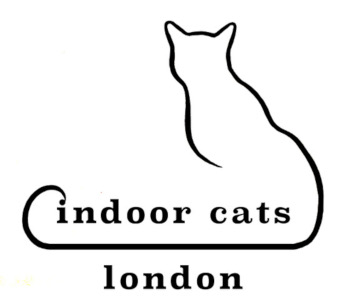

We only rehome cats to secure, indoor homes, which means that all windows, doors and balconies must be safe for our cats. As such, we can offer advice on tried and trusted experts to help you. We are happy to offer support and advice when asked. Between us, we probably have in excess of 150 years of caring for cats!
We insist that all windows that will be opened are covered with a protective screen, such as those available by Flat Cats. They are very reasonably priced and are vital for the safety of your cat.
Please ring Dominic from Flat Cats and say you are in talks with indoorcatslondon.com regarding adopting a cat and you will receive a very generous 20% discount.
Balconies must be catproofed and we can recommend excellent people to make them secure. It is utter nonsense to say that cats land on all four feet. A cat can break it’s jaw, teeth, legs and pelvis falling from something as low as a first floor balcony.
We will NOT rehome to anywhere that won’t, or can’t, secure their balconies and windows. Cats are very clever but their inquisitiveness takes over any kind of intellect where a bird, mouse, squirrel or butterfly is concerned and will launch themselves into open space to get to them, often to their own demise. Please, please don’t take any chances with their safety.
Please use a good quality litter and a decent sized tray. Empty and scrub, using scalding water and dish soap, daily. Cats are scrupulously clean and hate a dirty tray. Do not use bleach or disinfectant. Bleach mimics the scent of a tomcat’s spray and they may try licking the residue which can be fatal.
We prefer top loading, metal baskets as they are strong and secure with a rigid locking device to keep cats safe. Consider buying the cover that goes with it for a little privacy.
We recommend the use of glass, stainless steel or china bowls for cats. Plastic can harbour nasty germs in scratches or dints which may lead to skin complaints, and is also bad for the environment.
Please use a good quality wet food, such as Encore. This must be given twice per day with any left-over food being discarded and all dishes washed thoroughly, as well as a low sodium, additive-free, low sugar and low cereal dry food, such as James Wellbeloved or Purina.
Most plants have toxic plants which can be dangerous to cats so please be very careful of having houseplants or cut flowers near your cat. Lilies, in particular, are very dangerous with every part of the flower/stem/leaf is poisonous to cats.
Most house plants are dangerous to cats, who like to have a quick chew on passing. If you must have them, please keep them high up and out of reach.
We have recently been told that the lamps are very attractive to cats and if they lick them, they can die. Please remove them before introducing a cat to your home.
Powdered carpet cleaner can cause serious respiratory distress in cats. Please don’t use it.
Please don’t use any strong fragrances near cats. Their sense of smell is far more acute than ours and these can cause serious problems to their lungs, sometimes even leading to death.
Please be aware of the dangers of many house cleaning products. Cats gravitate towards anything that smells of ammonia, ie bleach, as this mirrors the spray scent of unneutered cats so please don’t use it anywhere near your cats and especially not in litter trays or on work surfaces. Similarly, Dettol is deadly for all animals.
Please only use worm and flea treatments prescribed by your veterinary surgeon. Many cats have died after being poisoned by over the counter, or even supermarket, treatments, including Bob Martin. Please remember that these are highly concentrated, toxic substances and should be treated with care.
FiV is a highly contagious disease, passed mainly between unneutered cats during mating and fights over territory and females. Once a cat is neutered, the urge to dominate an area eases off but these cats can have certain health issues and it is preferable to rehome them to an indoor home. Many vets now feel that FiV and non-FiV cats can safely be homed together once neutered and that the non-homing with other FiV and non-FiV cats is an outdated and draconian idea which has cost tens of thousands of cats their lives. We recommend that all prospective adopters do as much research as possible and make their own informed decision, but, unless a cat is terribly sick and suffering, there is NO reason to pts and we believe that as long as cats aren’t aggressive towards one another, they can happily cohabit with little danger. FiV should not be a death sentence to any but the sickest cat. If in doubt, please refer to Celia Hammond Animal Trust’s page. Celia is always the voice of no-nonsense, wise counsel. Extensive blood testing of her cats have shown that in twelve years of cohabiting, not one cat has been infected via grooming, sharing food or water bowls, or even minor scraps when they live together long-term.
For cats who are a serious flight risk, substantial screening is essential and in such cases, we recommend Streme.